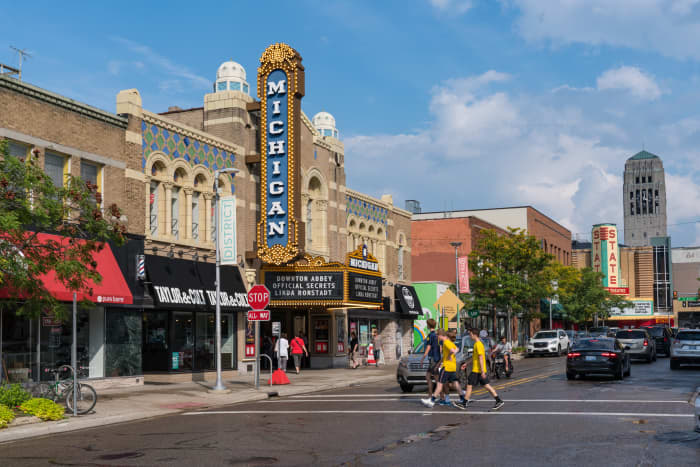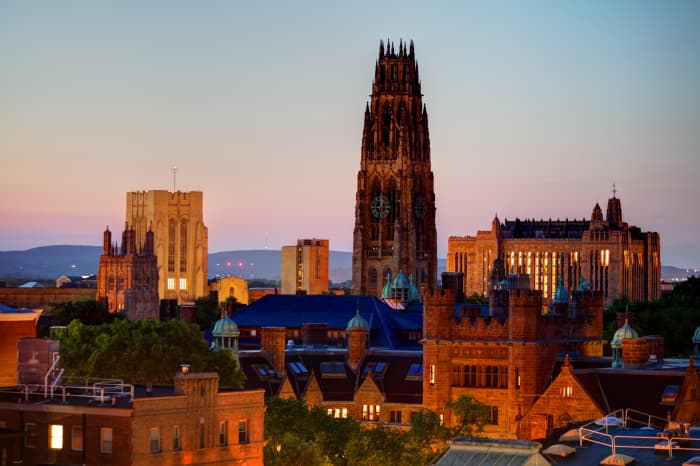Dear MarketWatch,
Where should I retire? I am a California native that currently lives in Louisiana. I do not wish to retire here. I need a location where the weather is similar to California or actually has all four seasons even if it is more on the colder side. I do not do well in humidity, health wise. I want a location that is diverse in people, culture and resources. I do not want to retire in any Southern states. I would like the median home range in the $350,000 or lower as I would like some real estate to come with the cost of the home. I would love to be surrounded by nature or scenery as I enjoy being outdoors, walking my dogs, riding bikes and hiking. I would also like a place that welcomes entrepreneurs or a progressive community. Where would you suggest?
Looking for ideas on the best place for you to retire? Email HelpMeRetire@marketwatch.com
Dear California native,
To keep you north of the Mason Dixon Line, with weather similar to California, there are some interesting options.
Pairing a northern state with four seasons in a location diverse in people, culture and resources – then college or university towns often fit the bill. Universities often serve as engines for entrepreneurship, as well, so that might help check that box for you, too.
The MarketWatch “Where Should I Retire” tool recommended retiring in or around Eugene, Ore., Bloomington, Ind., Missoula, Mont., and Madison, Wis., among other places. Check out our other columns on those locales.
Here’s a look at some of the other suggestions.
Corvallis, Oregon
A beautiful college town in Willamette Valley, Corvallis is the home of Oregon State University, as well as four other public and private colleges and universities in the area and a community college.
Located 80 miles from Portland, Ore., and 50 miles from the Oregon Coast, the city in Benton County is known as being livable, diverse and bicycle-friendly, with the League of American Bicyclists listing the town as a Gold Level Bicycle Friendly Community.
It also boasts a downtown with restaurants and breweries, art galleries and performing arts. Corvallis offers craft and art fairs and festivals throughout the year, as well as regular concerts, musical and dance events, and theater productions. Check out the Corvallis Fall Festival or the da Vinci Days Festival.
The population is about 60,000. Forbes named Corvallis one of the top 25 places to retire in 2016. It has mild, four-season climate and it’s on the West Coast, which could be good for your California heart.
Corvallis is also surrounded by natural wildlife refuges that makes it a great place to live if you like hiking, biking, hunting, fishing or even bird watching. Located nearby is the William L. Finley National Wildlife Refuge, the Sunset Natural Area and Timberhill Natural Area. Oregon State University also manages nearby Peavy Arboretum.
Like almost everywhere, the median housing price is creeping up, which could cross this off your list. The median housing price is about $385,000, slightly above your range. But the other benefits might offset the higher cost.
Ann Arbor, Michigan
The county seat of Washtenaw County with a population of about 124,000, Ann Arbor is a big college town as the home to the University of Michigan.
Ann Arbor is a progressive college city boasting fine dining, cutting-edge innovation and world-class attractions like the University of Michigan Museum of Art. The annual Art Fair is one of the largest juried art fairs in the nation, showcasing over 1,000 artists each year. The city also has a walkable downtown that is bike friendly and electric scooters are plentiful.
The area offers plenty of outdoor activities from kayaking and canoeing on the Huron River in the summer, to cross-country skiing, snowshoeing and ice skating in the winter months.

Historic Michigan Theater, built in 1928, located on East Liberty St. in downtown Ann Arbor, Mich.
Getty Images
Washtenaw County’s parks offer hiking options, as well. And if you want to get more adventurous, the nearby city of Chelsea, west of Ann Arbor, offers some of the best mountain biking trails in the state.
The median home price is $280,000, putting it in your range.
If Ann Arbor is too full of college students, the visitors center recommended checking out nearby Ypsilanti, Chelsea, Dexter, Manchester, Milan and Saline.
New Haven, Connecticut
Let’s keep going East.
Home to Yale University, New Haven features college sports, concerts, shopping, museums, festivals, and claims to have the most Zagat-rated restaurants in Connecticut.
The coastal city on Long Island Sound, the area benefits from Yale’s presence and the Yale Peabody Museum of Natural History, the Yale University Art Gallery and the Yale Center for British Art.

Evening view of the Harkness Memorial Tower and the Collegiate Gothic Memorial Quadrangle complex at Yale University.
Getty Images
For the outdoor biking and hiking you seek, there’s plenty of trails in surrounding areas like West Rock Ridge State Park. Also, take in the annual bird walks at Hammonasset Beach State Park, the Japanese cherry blossoms along Wooster Street and the Daffodil Festival at Hubbard Park. For your fall-foliage fix, check out Route 63 through Woodbridge and Bethany.
The median housing price in New Haven is $241,500. Its population is about 135,000, and it’s just a couple of hours from New York and Boston.
Still, New Haven is definitely more urban and traffic-y than the other suggestions, so that may not fit the bill.
Personally, I’d pick Cornvallis.
Readers, where should our “California native” move? Leave your suggestions in the comments section.